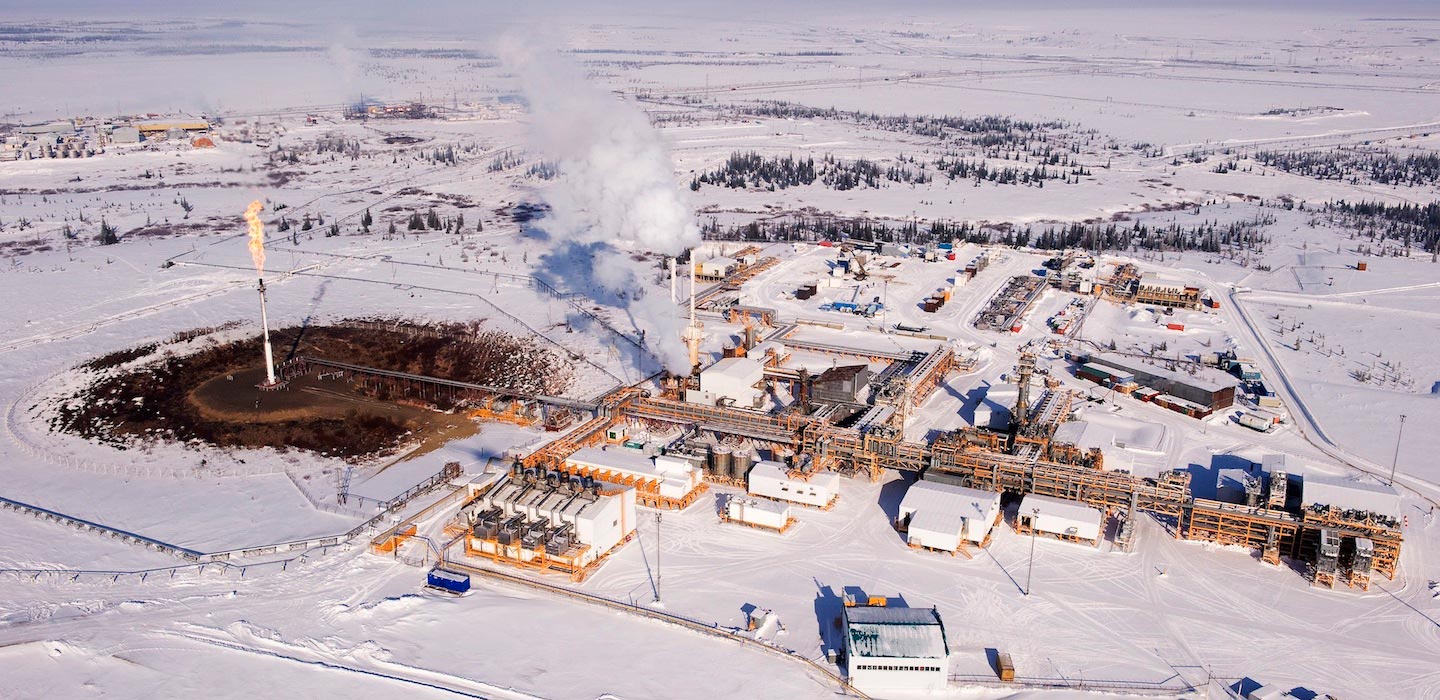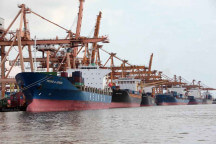MOSCOW: Russia’s fundamental national priorities are: developing hydrocarbon resources in the Arctic zone, but the lack of infrastructure, technological backwardness, incompetence in handling oil spills in icy conditions and even sanctions imposed on Moscow by the west are not as threatening to these federal initiative as are the falling price of oil.
Russian oil industry experts also say that these combined factors even falling prices are not as catastrophic as they would appear, and that oil will inevitably be produced on Arctic lands and seas.
“Developing resources in the arctic zone of Russia has been called a fundamental national interest,” Artrur Chilingarov, Vladimir Putin’s representative on international Arctic cooperation and president of Russia’s Association of Polar Explorers told the seventh annual Arctic Development Conference late last month.
“Development of continental shelf fields demands serious development of the Arctic infrastructure,” he told the conference, which took place during Murmansk’s International Business Week.
Mikhail Grigoriev predicted this would be possible in the next 15 years. Grigoriev is a member of the scientific council of Russia’s security council, an academic with the Russian Academy of Natural Sciences and director of the Gecon, a geological and mineral recovery and consultation firm.
He told the conference that based on deep earth use license agreements and approved field development projects, it’s a near certainty that the production of hydrocarbons by 2030 should be expected in three of the ten zones of economic activity on the Arctic shelf and coast, as well as in those that are already currently producing.
Grigoriev was speaking of the Timano-Pechora province along the north of the Western Siberian coast between the Ob and Yenesei Rivers, and about the Pechora sea’s continental shelf, to where three oil tankers carrying oil from the Prirazlomnaya field have been dispatched. Development of this area’s several fields has been long been on the drawing board.
“It’s interesting that the most favorable are in terms of climactic conditions is the central part of the Barents Sea, which, under the terms of licensing agreements, will be involved in development after 2030,” said Grigoriev.
According to Chilingarov, a new step in Arctic development was oil state oil giant Rosneft’s drilling of the “University 1” test well in the Kara Sea, which opened a light crude field called Pobeda, or Victory.
Chilingarov said the work was done in full compliance with the highest contemporary and international ecological standards. An unprecedented system of ice monitoring was employed, including the use of a number of specialized vessels.
“The project involved eight foreign companies. To our regret, this cooperation is now interrupted by the imposition of sanctions. I am convinced that by stopping this important project, both sides will suffer,” said Chilingarov.
While speaking about the development Dolginskoye oil field, located in the central part of the Pechora Sea, Alexey Fadeyev, the head production officer on the project for Gazpromneft-Sakhalin said that the company faced a number of difficulties.
“If we summarize those projects that are currently on the Arctic shelf and coast, it turns out that by 2030, the shelf will produce no more than 3 percent of the oil in the country as a whole [or 15 million of 500 million tons),” said Grigoriev. “There will be no gas produced from shelf resources. So, there’s no need to overestimate the prospects of developing the Arctic shelf, ” Grigoriev said.





